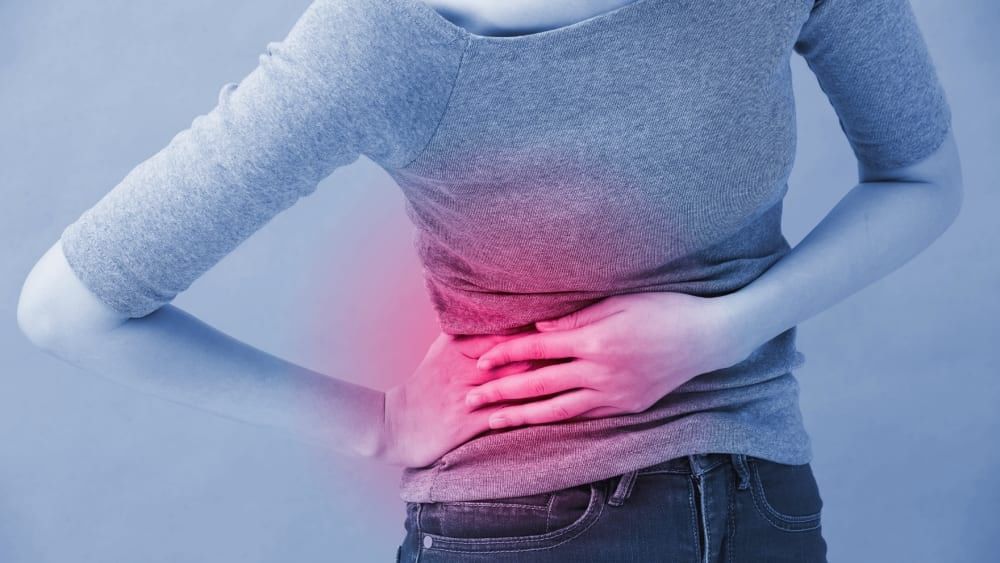Ayurvedic Hernia Treatment for Women
Ayurvedic treatments for Hernia have been used for centuries. They function through specific principles of balancing the 3 primal energies of your body. Namely, the Vata, Kapha, and Pitta.

Do you know what a hernia is? A hernia is an intestinal and abdominal disorder. The walls of your intestine or abdomen swell up in this condition, either internally or externally. How does this happen? Mostly due to a weakness of muscles resulting in tissues pushing them in an outward direction.
The next logical question- how do you prevent Hernia among women? It's simple. You follow a diet healthy and rich in fibers along with exercising regularly to maintain the strength of your muscles.
You can incorporate Kokum fruit benefits for women into your diet for improved digestion.
What are the symptoms of Hernia?
The different types of Hernia result in varied symptoms. The symptoms of Hernia among females often show up when the 3 doshas or energies are imbalanced.
For example, hiatus, inguinal and hiatal hernia results in weight loss.
Hernia Treatment in Ayurveda
Ayurvedic treatments for Hernia have been used for centuries. They function through specific principles of balancing the 3 primal energies of your body. Namely, the Vata, Kapha, and Pitta.
- Vata: The dosha that governs movement
- Pitta: The dosha that governs nutrient absorption and digestion
- Kaph: The dosha that governs body energy, its lubrication, and structure.
Asthana Basti as an Ayurveda for Hernia
Asthana Basti or Niruha Basti is a natural hernia treatment. What does this treatment entail? It administers herbal enema anally into the affected individual's body. What is this? It is oil, liquid, and some paste in its herbal form. Different women have varied preparations of this enema according to their symptoms and the intensity of the condition.
Treatment Duration: The preparation lasts for 5 days, and the treatment for about 8 days.
Benefits of Asthana Basti:
- Strengthens and cleanses intestine muscles.
- Manages Vata disorders, minimizes scrotum redness and regenerates body tissues.
- Strengthens your colon through harmful toxin removal from your system.
Also read: 7 health benefits of Mint
Virechana for Hernia
Virechana is, once again, a Tridosha Ayurvedic treatment of Hernia.
Kaph Treatment: Natural herbs are used to cleanse bowel movements of hernia patients here. Through this, swellings are minimized, and the Kapha dosha is balanced. Some of the herbs used in this treatment are:
- Triphala- a mixture of Amla, vibhitaki and haritaki
- Rhubarb or Amlaparni
- Trikatu- a mixture of long pepper, dried ginger, and black pepper
- Senna
Vata Treatment: A piping hot and salty mixture is used in the form of a laxative to purge all toxins from the system. Ginger, Isabgol or psyllium husk, and rock salt are some popular ingredients used.
Pitta Treatment: The herbs and oils mentioned above eradicate the excess bile from your liver, intestine, and gallbladder.
Pinda Swedan for Hernia
Pinda Sweda follows a two-step procedure:
- Massaging the affected part of your body with oil
- Ease pain via poultice usually made with hot rice, also referred to as fomentation.
Treatment Duration: 7 to 21 days
Benefit of Pinda Swedan: It treats the loss of muscle tissue, also known as muscular atrophy.
Hing as an Ayurvedic Herb for Hernia
Hing is a resin extracted from the asafoetida plant. Some of its properties are:
- Hing relieves muscle spasms
- Hing alleviates pain related to bowel movements
- Hing relieves gastric issues
- Hing loosens cough mucous
Benefits of Hing:
- Assists in better digestion
- It helps in relieving constipation
- Relieves cramps, gastric problems, and abdominal issues
- Enhances intestine functioning
Snehana for Hernia
Snehana is a type of warm medicinal, essential oil massage. This is performed on hernia patients to purge toxins from their bodies. Some commonly used oils of this method are:
- Sesame oil or ghee
- Canola, flaxseed, or mustard oil
- Flaxseeds. There are plenty of benefits of eating Flaxseeds for women
Treatment Duration: 3 to 7 days
Benefit of Snehana: Removes toxins in the body.
Herbal Healing
Herbs are prescribed periodically by many Ayurvedic doctors. This is not surprising in hernia treatment. They may ask you to consume these herbs in the form of capsules easily available in the marketplace. Here are some Ayurvedic herbs for hernia treatment:
Senna for Hernia
Senna consists of a group of sennosides that help improve bowel movement by stirring the bowel's lining.
Benefits of Senna
- Laxative effects
- Promotes movement of the alimentary canal that helps digestion
- Regulates muscle contractions of the intestine
Kutaja Aids Hernia
Kutaja is used for treating Hernia because it is endowed with the following properties:
- Anti-dysenteric (treats diarrhea)
- Anthelmintic (removes pathogens)
- and astringent (contracts body cells) in nature.
Benefits of Kutaja
- Assists digestion. You can also consume Jeera water benefits for women for the same.
- Improves appetite
- Gets rid of bacteria from the intestine
Indian Madar or Manjistha for Hernia
Roots of manjistha plants are used to treat hernias as oil, decoction powder, or ghee.
Benefits of Manjistha:
- Purifies blood
- Reduces inflammation and thus helps in treating tumor and Kapha disorders
- Helps in healing tissues after intense therapy or surgical operation
Karanja Helps in Treating Hernia
The anti-inflammatory and astringent properties of Karanja make it a suitable treatment for Hernia.
Benefits of Karanja:
- Improves functioning of digestive juices
- Maximizes absorption of nutrients through food
- Relieves stomach bloating
- Strengthens your intestines
Home Remedies for Hernia Pain
- Adding fiber-rich plants to your diet like carrots, Brussel sprouts, beetroots, celery, and broccoli will help considerably.
- Lean on anti-inflammatory herbs like Turmeric and Ashwagandha along with your meal. Also, learn how to take Ashwagandha correctly.
- Plan 6 - 7 small means instead of a few heavy ones.
- Limit sugar and carbohydrate-rich diets as they help in bacterial flora growth in the intestine.
- Practice intermittent fasting.
- Include more karela (bitter gourd), cucumbers, horseradish, and garlic in meals.
- Avoid eating legumes.
- Do not consume medicines with hernia-instigating properties like kashaya (astringent), tikta (bitter), guru (heavy), katu (pungent), and ruksha (dry), etc.
Also read: 5 benefits of prunes
References
1) https://www.ncbi.nlm.nih.gov/pmc/articles/PMC3336287/
2) http://oaji.net/articles/2017/1791-1533315971.pdf
3) https://journals.sagepub.com/doi/10.1177/2156587215596283
4) https://www.ncbi.nlm.nih.gov/pmc/articles/PMC3336313/
5) https://ijpsr.com/bft-article/rubia-cordifolia-a-review-on-pharmaconosy-and-phytochemistry/?view=fulltext
